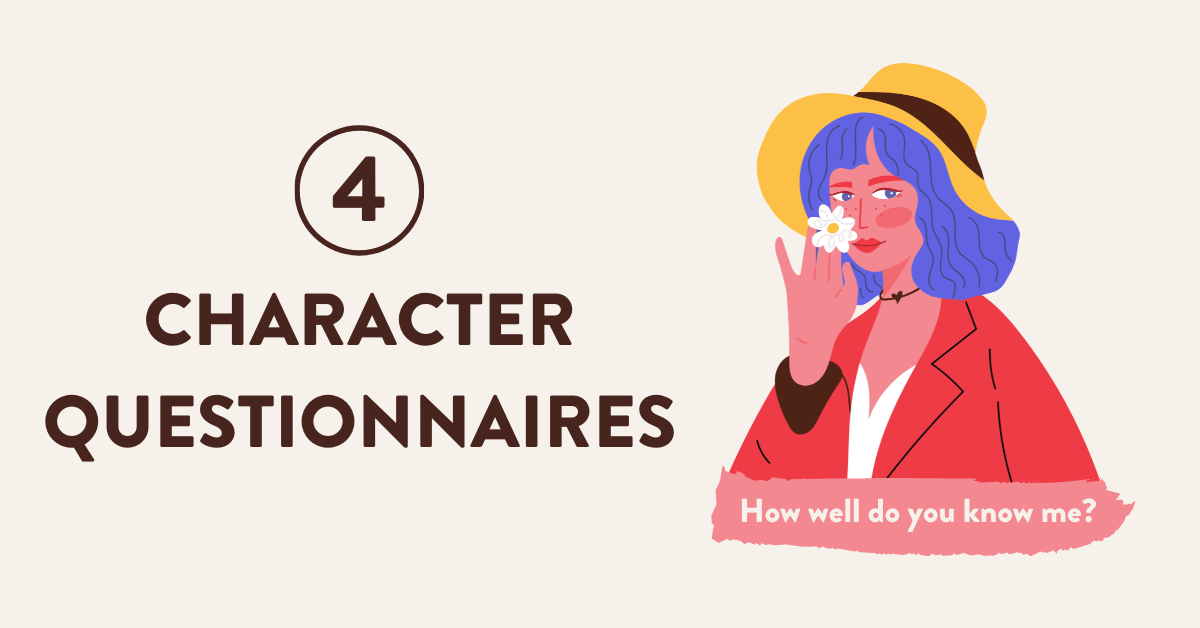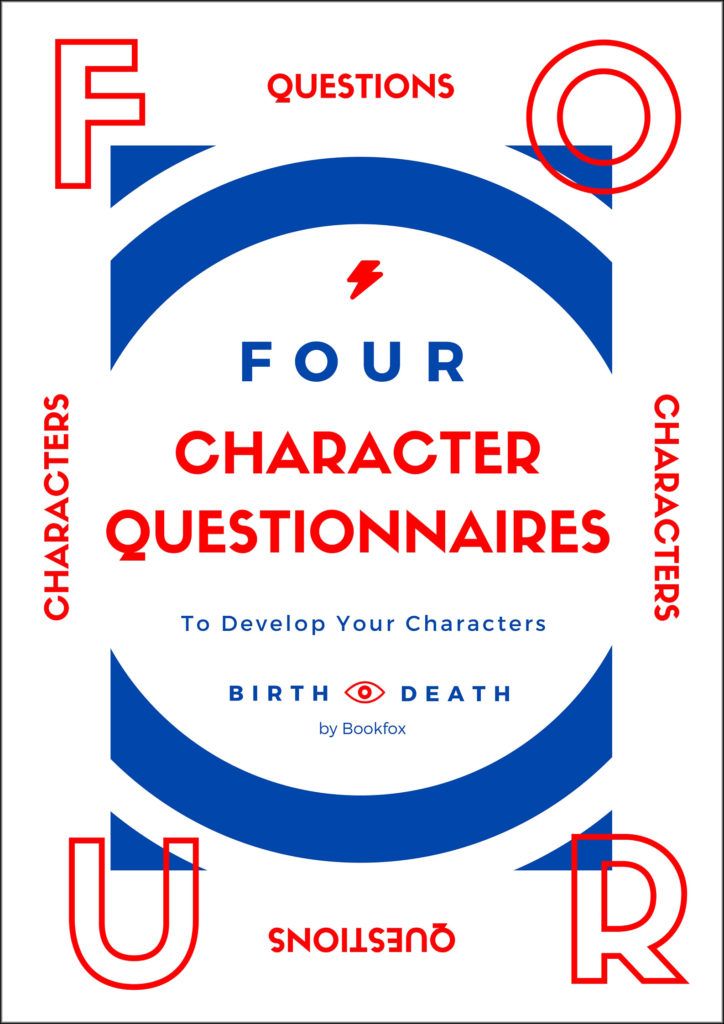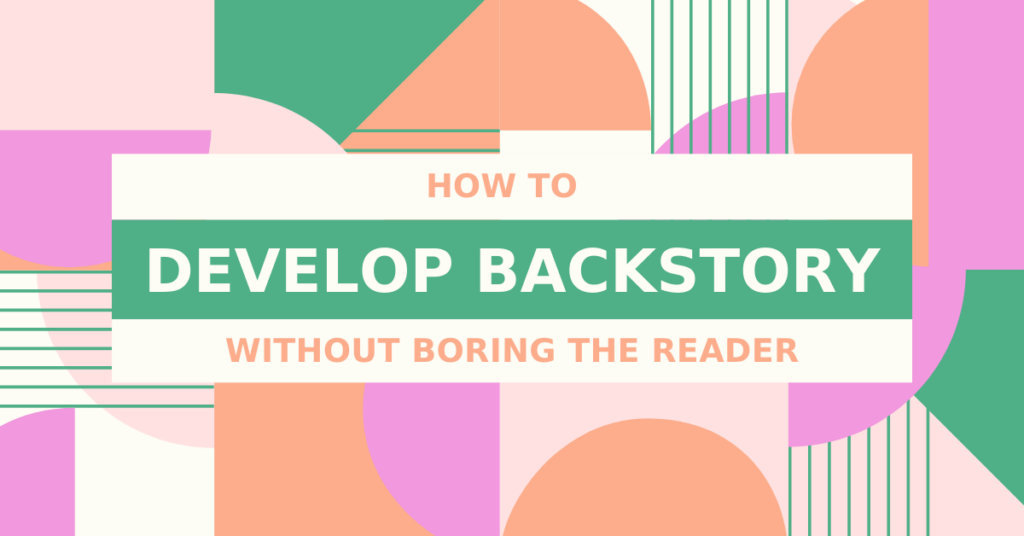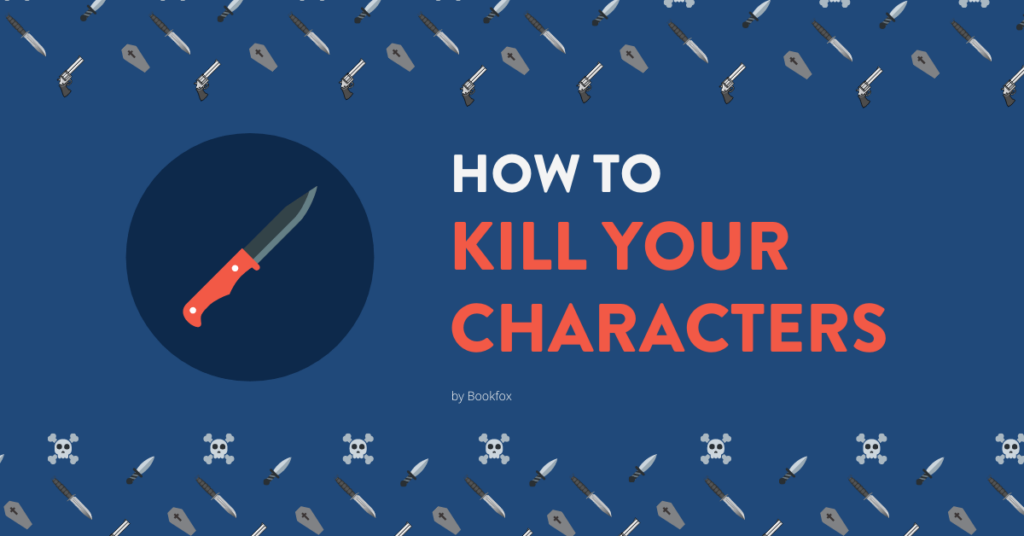 There are lots of character questionnaires out there stuffed with 200, 300, and even 400 questions.
There are lots of character questionnaires out there stuffed with 200, 300, and even 400 questions.
This is overkill.
It’s not about how many questions you can answer, it’s about what questions you’re asking.
The majority of questions on these questionnaires are filler that waste the author’s time. I mean, “How does this character view life?” or “What is this character’s dental work like?” (I’m not kidding).
This is garbage, and ultimately unhelpful to making the character a fully realized human on the page.
Let’s skip right over the ones that you should know already:
- Physical characteristics (hair, eye color, body build, injuries)
- Location (city, state, country)
- Gender
- Age
Once you have those basics down, then the majority of character questionnaires out there are worthless.
1. Let’s Build a Better Character Questionnaire
 What you need to do is ask yourself a precise set of questions that will reveal the heart of any character. You need a matrix that you can put on any character at all, and if you complete this matrix, out will step a fully-recognizable, fully realized human being.
What you need to do is ask yourself a precise set of questions that will reveal the heart of any character. You need a matrix that you can put on any character at all, and if you complete this matrix, out will step a fully-recognizable, fully realized human being.
And so I present a test. A psychological test.
If you can answer at least 17 out of 20 questions about your character, then you pass as an author. If you fail to answer that many, then you have work to do.
You might notice that most of the questions below are psychological in nature. That’s on purpose. Most new authors get the basics of their character just fine — what they look like, what car they drive or sword they swing, the number of family members — but they fail to understand the deepest motivations of their characters.
20 Psychological Questions Test:
- What does your character want most?
- What do they fear the most?
- What is their worst habit?
- What bores your character?
- Are they an optimist or pessimist, introvert or extrovert?
- What is their greatest weakness and greatest strength?
- Do they have self-doubt, or are they completely gung-ho?
- What is the most violent thing they’ve ever done, and the most violent thing done to them?
- Who do they love the most, and who do they hate the most?
- What do they do in their spare time?
- How hungry are they for power?
- How ambitious are they?
- Do they have a strong moral compass or are they willing to break the rules if it benefits them?
- Who is this character deceiving? (It may be themselves or they may be putting on a facade for someone else)
- What makes this character feel the happiest?
- Who does this character admire the most?
- What is their biggest secret?
- What is their sense of humor like?
- What would this character do which would be out-of-character for them?
- What are they superstitious about?
How many questions in this character questionnaire were you able to answer right away?
 17 – 20:
17 – 20:
Gold Star. You win the writing game. You likely have been thinking about this character for a long time, and he or she is fully realized. Congratulations!
 14 – 16:
14 – 16:
Silver Star. You have a pretty good sense of your character, but they could get in a situation that would flummox you, or where they would act out of character. You might need to just write about them more to find out more, or you could free write on the questions you didn’t know.
 10 – 14:
10 – 14:
Bronze Star. You at least have thought about your character some, and this character questionnaire has both exposed some gaps and areas of expertise. But you have a good amount of work to do before you can unleash them on the page with full confidence.
 1 – 10:
1 – 10:
You don’t know much about your character. You probably had to stop and think about many of the ones you did get right. Now, this isn’t entirely bad — this questionnaire has at least given you the answers, and you can use those answers as you fully sketch out this character on the page. But you do need to spend more time with your character to understand them better.
Okay.
So you’ve done the 20 psychological questions. Wonderful. Now on to test #2, specific details about your character.
2. What’s Most Interesting About Your Character?
 Remember that you only need a few key details to create a fully recognizable character. I call it the Five Key Details.
Remember that you only need a few key details to create a fully recognizable character. I call it the Five Key Details.
If you know five of the most interesting things about a character, and you describe those things to the reader in a dramatic fashion, the reader will feel like they know the character.
This is why all those 400-question character questionnaires are worthless. Because you’re going to end up with too much information to fit inside a narrative.
Besides, you don’t ultimately get to know your character through answering questions in a spreadsheet. You get to know your character through writing him or her again and again, in scene after scene, watching them do things and watching how they react when things are done to them.
There is no shortcut for the intimacy created on the page. You can’t manufacture a sense of connection through a list, only through action.
Look over this questionnaire and pick out the five questions which will reveal the most about your character. Remember: you only get five, so choose carefully:
FIVE KEY DETAILS Test:
- Do they like or hate their nickname?
- Do they have ardent political beliefs?
- How do they practice their sexuality?
- What is their relationship like with their siblings?
- What is the one object they would save from a burning home?
- What is strange or odd about the way they dress?
- Do they own a gun?
- What is their relationship like with their parents?
- What strange decoration do they have all around their bedroom?
- What is their biggest pet peeve?
- How would someone realize they were irritated or impatient?
- What filler words do they use in everyday speech? Do they have an accent or speech impediment?
- What is their nationality or ethnicity?
- What is their top goal on their bucket list?
- Are they strangely short or tall?
- On a scale of 1 – 10, how beautiful is your character?
- What is their relationship to religion? Devout or skeptical?
- What physical tic do they have? Spitting? Blinking? Snapping their fingers?
- Are they vegetarian or vegan or gluten-free or hardcore carnivores?
- What is the one object they always keep near them?
Now write out those five details, and figure out a way to work them into your story. Maybe make one of them a mystery that gets revealed very slowly in the story.
3. Figure out Your Character’s History
The biggest mistake many writers make is telling too much backstory.
If at all possible, tell as little backstory as possible. Or at least tell the backstory while in the present, instead of flashing back to the past.
Every character has a backstory, but it’s better for us to see how that backstory affects the character now rather than taking us back to the original story and letting us see it firsthand.
So for this challenge, pick TWO of the questions below that illuminate their backstory best.
BACKSTORY Test (choose two)
- What is their reoccurring dream, whether nightmare or fantasy?
- Did they have an easy or difficult childhood?
- What is the story behind their biggest scar?
- What was their first job?
- What is their most powerful memory?
- What event in their past is most responsible for shaping who they are today?
- What is your character’s history of romantic relationships? (worst or best)
- What has your character not yet understood about their past?
- What is their greatest achievement?
- Have they had any allergies or diseases or handicaps since birth?
- How much schooling did they have, and was this a good experience?
- When, if ever, did they lose their virginity?
- Who had the biggest influence on them?
- What is their criminal record?
- Has your character ever served in the military?
- What was their first love?
- How have they been humiliated throughout their life?
- How many sexual partners have they had?
- Have they ever gotten someone pregnant or had a child?
- What is their relationship to their hometown?
4. The Last Test: SITUATIONAL KNOWLEDGE
 What we’re going to do now is take all these character questionnaires and flesh them out in a scene. This is what some questionnaires call a “Situational Question.” Basically, how would your character act in some situations?
What we’re going to do now is take all these character questionnaires and flesh them out in a scene. This is what some questionnaires call a “Situational Question.” Basically, how would your character act in some situations?
However, I think it’s less helpful to ask questions about how your character might react in certain situations, and just put them in a single situation where you can show all of your knowledge of them.
For instance, how would your character react if they were faced with physical or emotional danger?
Combine these three tests:
- Psychological Knowledge
- Five Details
- Two Backstories
And try to write a scene with physical or emotional danger that uses one of the bits of psychology, one of the details, and alludes to one thing in their backstory.
If you can combine one of each of these categories in a single scene, you’ve gone a lot way to creating a fully realized character.
Congrats!
Other Helpful Character Questionnaires:
Marcel Proust created this list of 35 questions for your characters, but I find it a little wimpy. And it’s not just because he’s French, and not just because he writes very introspective, slow books, but because the questions don’t have an edge. Still, if you want to firm up your character more, take a look.
2. 100 Questions to Interview Your Character
If you can ignore the silhouette of a castrated man, this character questionnaire offers quite a few ideas to build your character’s personality and physical traits. I think the very last question is useful: why would readers sympathize with this character? If you don’t know that, no one will like your character very much.
3. Unclean Arts’ Screenwriting Character Questionnaire
There are some annoying typographic errors in this one, but I like the question about what would embarrass your character and their socioeconomic standing (are they rich or poor?). I like the notion of a catchphrase (Marcel Proust called it a motto). Might be cheesy to include in the book, but knowing it might help you understand your character.
4. The Writer Owl’s Ultimate Character Questionnaire
I think by Ultimate the Writer Owl meant there was a lot. I mean, I’m not going to count the questions but there’s over 100. A lot of them are pretty common and repeated elsewhere, but the owl does a good job of breaking the questions into categories: speech, relationships, objects, etc.




18 comments
Thanks so much for your truly helpful articles. My printer is tired if all the ink-spitting I have put it through and I found this so helpful that I actually wrote everything over by hand for myself. My hand is complaining quite a bit, as I also wrote out your article on how to start writing a book in 13 easy steps. :-). I have learnt so much and I am going to enjoy using these skills in my novel writing.
Thanks a million
This is interesting and useful. I am thankful to you for all the good advice. That said, please, though, do not use plural pronouns in place of appropriate singular ones. To me, this modern conceit is precious, disturbing, distracting, off-putting. When I come to such an affectation, I swallow it like a bit of surprising stuff in a spoonful of the soup. I stare into the soup bowl for a moment and think, “To hell with it.”
They as a singular pronoun has been in use since the 14th century. It’s gramatically correct. Drown in your pretentious soup and writing.
I work on my book, and show it to others; I read about writing; but when I want to cut through all the clutter, I come here to your site and find it all laid it in plain English. Thanks for this great post!
Thank you for this post. I’ll add some of these questions to my normal 100 question template for my characters. 🙂 This is helpful.
Your comments are very helpful
Thanks so much for these wonderful posts! I have been eagerly awaiting each new one and applying the new skills I’m learning to my various writing projects.
My one caveat about this post is about 5 Key Details test, question 7: do they own a gun? As a writer of fantasy, I realize that my answer to that question would invariably be no. But what if your character has a sword? Or a phaser? Or a lightsaber? Perhaps the question ought to be: do they own a weapon? (of any kind).
When I wrote out this questionnaire, I replaced “do they own a gun” with “do they own a weapon”.
That’s all. Otherwise, the questionnaire was excellent and helped me flesh out some of my more minor characters as well!
These articles are really helpful, especially for a young author like myself, who doesn’t have the income to go on creative writing courses. Many Thanks!
I have found the test very interesting. If I had found out about it before I started my series of books may be the publisher would not have said you have too many errors and we need shorter pages more your characters and book.
Not only helpful but inspiring. Keep em coming…
Thank you so very much! I’ve contemplated writing a children’s book for years and always got writer’s block. Your advice gives me hope!
I am so thankful to have landed on this piece of writing. I am done writing the children’s book and I am in the process of writing a design brief. I guess now I have to go back to the drawing board.
After ‘analyzing’ the well-known characters in several book series I enjoy, I find these questions are not fully answered in any of them. For instance, far from 17-20 solid answers, the best score was an 8 (in the first questionnaire on character). In each of these favorite series, I’ve read at least 6, and usually more, books. Perhaps genre distinctions should be another category, with its own emphasis on a particular set of character questions applicable to that particular genre.
It’s important for you to know the answers even if it doesn’t make it into the book. You have to know your character as well as you know your best friend.
Your ‘4 Character Questionnaire Tests’ article is one of the better ones I’ve read on the subject; I’ll eventually read the other two referenced when I have time over the holidays (Thanksgiving weekend, Christmas–New Year period). Based on earlier comments, I’ll have to read some more articles too.
I thought about a children’s book idea and wasn’t sure where or how to start. This has been truly insightful
I love this .I am happy I found this and I’m subscribed. Thank you.
This article is very useful for a protagonist, but what about the secondary characters? It’s clear we should know them as well, but surely not with the same deepness. What is opinion on this?